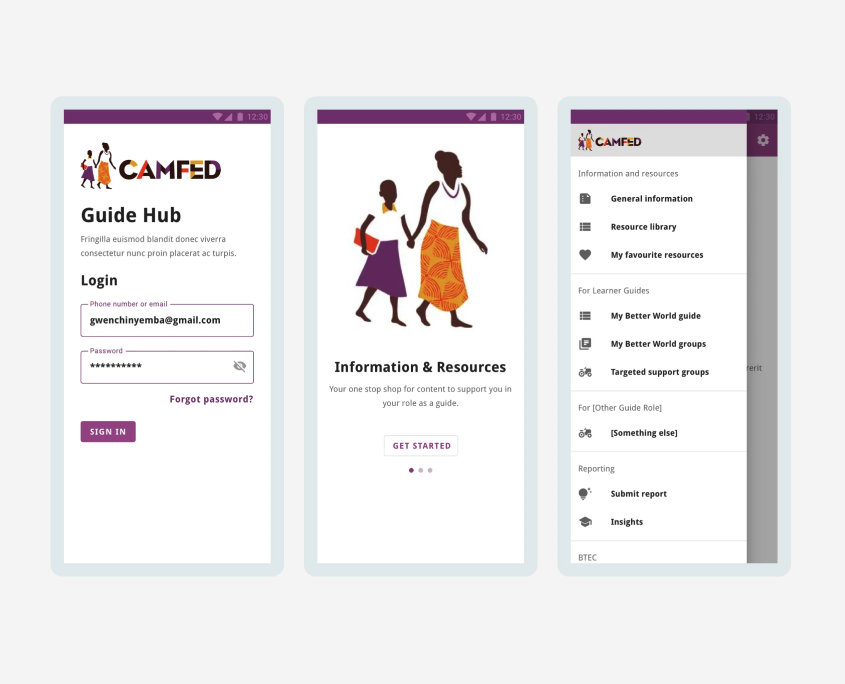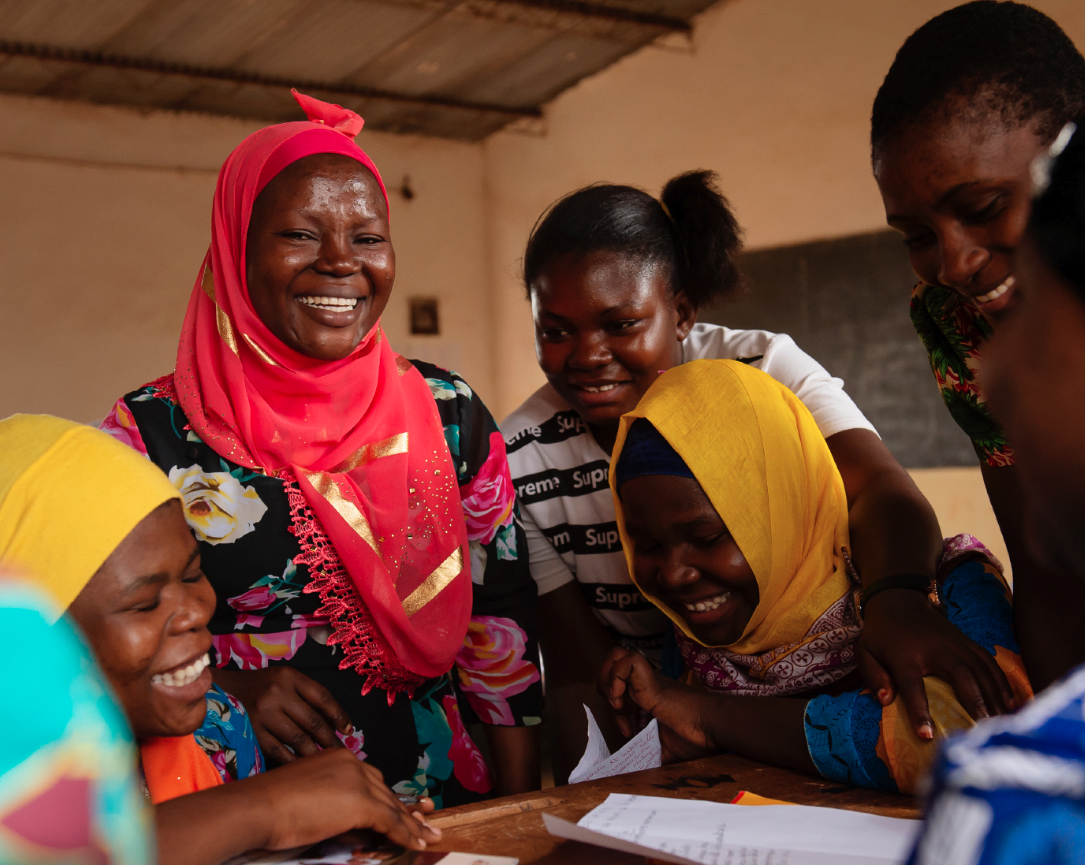
Background
CAMFED (Campaign for Female Education) is an internationally recognised non-profit organisation working to tackle poverty and inequality by supporting girls and young women through education in sub-Saharan Africa. A core part of CAMFED’s model is the Learner Guide programme — a volunteer-led initiative that supports thousands of school-aged children across rural communities in five countries. These Learner Guides often operate in remote regions with little or no internet access, using Android devices to record, track, and report their work.
To scale this effort and increase the impact of their on-the-ground support, CAMFED needed a digital solution that could work in extremely low-connectivity environments — while still maintaining secure, reliable communication with central systems. The organisation partnered with 6B to develop a progressive web app (PWA) MVP that could deliver this functionality quickly and effectively.
The Need
Learner Guides are mobile by nature — travelling between schools, homes, and villages in regions where connectivity is limited and data costs are prohibitive. They needed a lightweight, reliable application that could store critical content locally, enable offline usage, and seamlessly sync new data when reconnected to the internet. At the same time, Core Trainers — more senior, office-based team members — needed access to up-to-date information from the field, and the ability to manage or support Learner Guides from their own devices.
The challenge for 6B was to build an app that would be fully accessible on both mobile and tablet, prioritise offline functionality, and support asynchronous data syncing — all within a rapid MVP delivery timeline. The solution had to be hosted in CAMFED’s existing Azure environment, integrate smoothly with their internal systems, and meet the needs of multiple user roles without unnecessary complexity. Crucially, the product had to be intuitive and lightweight enough to run on low-spec Android devices in areas with intermittent power and network coverage.

The Solution
6B designed and developed a bespoke progressive web application (PWA), architected from the ground up to support CAMFED’s unique user and infrastructure requirements. The application was built using modern web technologies that ensured compatibility with Android devices while offering native-like usability — including offline-first content access, fast load times, and secure, asynchronous data transactions.
For Learner Guides, the PWA provides a dedicated digital hub where content — such as training resources, activity forms, and student support materials — is cached locally on their device. This allows them to complete tasks and submit updates entirely offline. When the device next connects to WiFi or mobile data, the system automatically syncs updates in the background, ensuring no disruption to their work or need for manual intervention. Content delivery was optimised using background service workers and IndexedDB storage, providing robust offline access even in bandwidth-constrained settings.
A separate interface was developed for Core Trainers, allowing them to manage cohorts, track Learner Guide activity, and push content or updates directly to the field. Role-based access controls and secure authentication were implemented to protect data integrity while keeping the experience seamless for users across both roles.
The application’s modular architecture allows for flexible development beyond the MVP — enabling CAMFED to roll out new features, analytics tools, or learning modules based on real-time user feedback. Hosting on Microsoft Azure ensured infrastructure compatibility and simplified deployment within CAMFED’s existing IT ecosystem.
6B worked closely with CAMFED’s internal product lead and technical advisors throughout the agile development process, delivering frequent updates and validating functionality against real-world use cases. From offline testing scenarios to localised content handling, every part of the application was designed with context-specific user behaviour in mind.
The Impact
The new PWA has laid the foundation for scalable, digital learning support across CAMFED’s programme countries. With local caching, asynchronous data handling, and a fully responsive interface, Learner Guides are now able to carry out their work uninterrupted by poor connectivity — recording student outcomes, accessing learning resources, and managing their responsibilities through a single, reliable hub.
Piloting with 1,000–2,000 users, the MVP has already demonstrated the power of an offline-first approach in humanitarian tech. Initial user feedback has highlighted dramatic improvements in accessibility, data consistency, and ease of use. For CAMFED, the application not only reduces administrative overhead and communication delays, but it also strengthens their broader mission — ensuring that no girl is left behind due to geography or infrastructure limitations.
By focusing on bespoke software, scalable architecture, and human-centred design, 6B helped CAMFED move from prototype to product in record time — with a robust foundation now in place for future feature development and wider programme rollout.